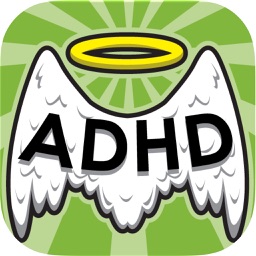
Attention-deficit/hyperactivity disorder (ADHD) is a neurodevelopmental disorder characterized by symptoms of inattention, hyperactivity, and impulsivity. It affects approximately 5% of the global population, making it one of the most common psychiatric conditions in childhood. Research has consistently demonstrated that individuals with ADHD are at a heightened risk for developing substance use disorders (SUDs). Understanding the intricate relationship between ADHD and substance abuse is crucial for developing effective prevention and treatment strategies.
Understanding ADHD
ADHD is marked by significant difficulties with attention, executive function, and impulse control. These challenges can manifest as distractibility, difficulty organizing tasks, forgetfulness, and an inability to sit still or wait one’s turn. The disorder typically emerges in childhood and can persist into adulthood, though the presentation and impact of symptoms may evolve over time.
The Link Between ADHD and Substance Abuse
Increased Risk Factors
Impulsivity and Risk-Taking Behavior:
One of the hallmark Symptom of ADHD is impulsivity. Individuals with ADHD often engage in behaviors without fully considering the potential consequences. This impulsivity can lead to higher rates of experimentation with substances during adolescence—a period already marked by increased risk-taking behavior. The tendency to act on impulse can make individuals with ADHD more susceptible to trying drugs or alcohol and continuing use despite negative consequences.
Self-Medication Hypothesis:
Many individuals with ADHD struggle with chronic emotional dysregulation and stress. To alleviate these symptoms, some might turn to substances as a form of self-medication. For example, stimulant medications like cocaine or amphetamines might seem to temporarily improve concentration or mood. This coping mechanism, however, often leads to a cycle of dependence and addiction.
Neurological Factors:
Research suggests that ADHD and substance abuse share common neurological pathways. Both conditions involve disruptions in the brain’s reward system and executive functioning regions. Individuals with ADHD often have differences in dopamine regulation, a neurotransmitter crucial for reward and motivation. These neurological abnormalities might increase susceptibility to substance abuse, as drugs that alter dopamine levels can exacerbate existing dysregulation.
Comorbid Mental Health Disorders:
ADHD often coexists with other psychiatric conditions, such as depression and anxiety disorders. These comorbid conditions can further complicate the relationship between ADHD and substance abuse. For instance, individuals with ADHD and depression may use substances as a way to manage their depressive symptoms, leading to a higher likelihood of developing a substance use disorder.
Age and Developmental Factors
The risk of substance abuse in individuals with ADHD can be influenced by developmental stages. During adolescence, the brain is still maturing, particularly areas related to decision-making and impulse control. This developmental vulnerability, combined with the impulsivity characteristic of ADHD, can increase the likelihood of substance experimentation and abuse during this critical period.
Consequences of Co-occurring ADHD and Substance Abuse
Increased Severity of ADHD Symptoms:
Substance abuse can exacerbate ADHD symptoms, making them more severe and harder to manage. For instance, alcohol and certain drugs can impair cognitive functions, worsening attention and executive function issues. This can create a vicious cycle where substance use worsens ADHD symptoms, leading to further substance use.
Impaired Treatment Outcomes:
The presence of a substance use disorder can interfere with the effectiveness of ADHD treatments. Stimulant medications, which are commonly prescribed for ADHD, can have their effects altered by substance use. This can make it more challenging to find an effective treatment plan for ADHD and increase the overall burden of the disorder.
Social and Functional Impairments:
Both ADHD and substance abuse can lead to significant social and functional impairments. Individuals may struggle with relationships, employment, and academic performance. The combination of ADHD and substance abuse often compounds these issues, leading to more severe disruptions in personal and professional life.
Prevention and Intervention Strategies
Addressing the connection between ADHD and substance abuse requires a multifaceted approach that includes prevention, early intervention, and effective treatment strategies:
Early Identification and Monitoring:
Early identification of ADHD and monitoring for signs of substance use are crucial. Routine screening for substance use in individuals with ADHD can help catch problems early and provide timely intervention.
Comprehensive Treatment Plans:
Effective treatment for ADHD in individuals with substance abuse issues often requires a comprehensive approach. This might include a combination of medication management for ADHD, behavioral therapies, and substance abuse treatment programs. Integrated care models that address both conditions simultaneously tend to be more effective than treating them separately.
Educational and Support Programs:
Educational programs that focus on the risks of substance abuse and strategies for managing treatment of ADHD can be beneficial. Support groups and counseling can provide individuals with ADHD the tools and support needed to avoid substance use and develop healthier coping strategies.
Family Involvement:
Involving family members in treatment can provide additional support and improve outcomes. Families can be educated about ADHD and substance abuse, learn effective communication strategies, and support their loved ones in adhering to treatment plans.
Conclusion
The connection between ADHD and substance abuse is complex and multifaceted, involving a combination of behavioral, neurological, and developmental factors. Individuals with ADHD are at a higher risk for developing substance use disorders, and the presence of both conditions can significantly impact their quality of life. Effective management requires a comprehensive approach that addresses both ADHD and substance abuse, involving early identification, integrated treatment strategies, and ongoing support. By understanding and addressing the underlying factors contributing to this connection, we can improve outcomes and help individuals lead healthier, more fulfilling lives.